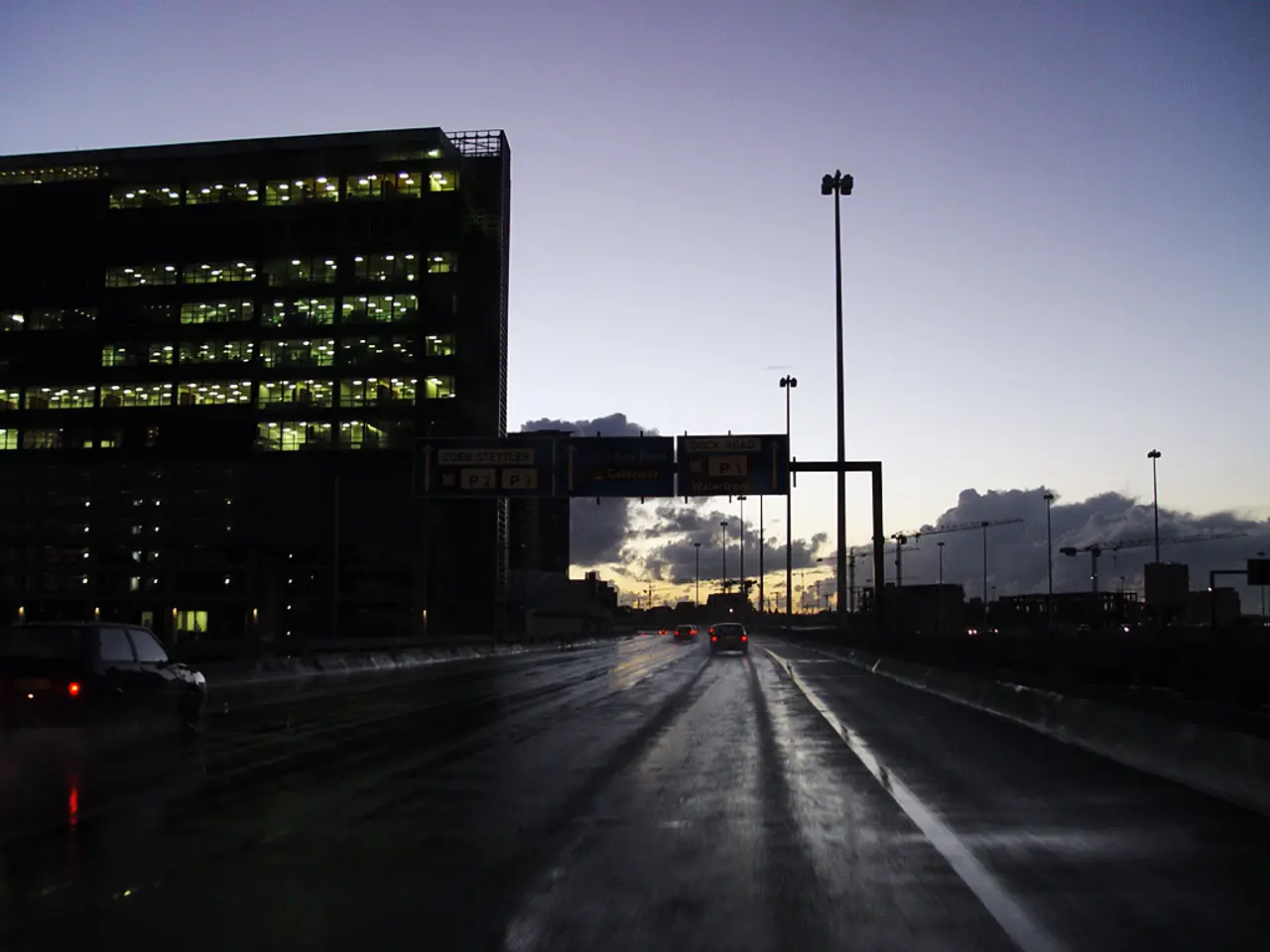Advocating for Change in Permitting Regulations, as Suggested by Leader Scalise
In the heart of the ongoing discussion surrounding the next infrastructure bill, the need for prioritization is clear, and one area that has garnered significant attention is bipartisan permitting reform. This initiative, spearheaded by the Global Energy Institute, aims to streamline and clarify the federal permitting process for infrastructure and energy projects, reducing delays and costs while maintaining robust environmental and safety evaluations.
The focus is on creating a system that both Republicans and Democrats support, expediting projects like solar and wind installations, transmission lines, transportation, water systems, and broadband infrastructure.
Principles of Bipartisan Permitting Reform
The reform principles are centred on predictability, efficiency, transparency, and stakeholder input. To achieve this, the following steps are proposed:
- Streamlining reviews to reduce redundant environmental assessments, focusing on direct environmental impacts linked to projects.
- Clarifying ambiguities in current permitting laws to remove uncertainties that cause delays.
- Setting clear deadlines for environmental reviews and limiting protracted judicial challenges to NEPA claims.
- Promoting use of existing environmental reviews from federal, state, and tribal entities to avoid duplication.
- Maintaining robust but efficient environmental evaluation criteria to balance project speed with protective oversight.
- Encouraging coordination among federal, state, and local governments to expedite permitting at all levels.
Current Status and Expected Impacts
As we approach mid-2025, there is growing momentum towards bipartisan consensus in Congress. Important bipartisan bills, such as the Standardizing Permitting and Expediting Economic Development (SPEED) Act, have been introduced, proposing specific NEPA amendments and process improvements.
State governments, like Maryland, are proactively creating pilot programs to streamline permitting at state and local levels, complementing federal reforms. The expected impacts include reduced project delays and lower costs for critical infrastructure and energy projects, increased private sector investment, faster deployment of renewable energy infrastructure, and enhanced efficiency and predictability in the regulatory process.
In essence, bipartisan permitting reform is about making the process faster and clearer while still ensuring environmental protections. It's a step towards unlocking infrastructure and energy projects essential to economic growth and environmental sustainability in the US.
The Chamber, working with lawmakers on both sides of the aisle, is advocating for comprehensive permitting reform that delivers results for businesses, communities, and the environment. The goal is to build the future faster, smarter, and together, addressing critical challenges such as energy security, the global AI race, and economic competitiveness by building the necessary infrastructure for the nation's future.
- The Chamber, alongside lawmakers from both political parties, is advocating for comprehensive permitting reform, focusing on streamlining and clarifying the federal permitting process for infrastructure and energy projects.
- This reform initiative aims to reduce delays and costs, maintain robust environmental and safety evaluations, and promote competitiveness in commerce and economic growth.
- The reform proposals center on principles like predictability, efficiency, transparency, and stakeholder input, ensuring a bipartisan approach that prioritizes business, industry, and the environment.
- Steps like streamlining reviews, clarifying ambiguities, setting clear deadlines, promoting use of existing environmental reviews, and encouraging coordination among governments are key to achieving this goal.
- The expected benefits include faster deployment of renewable energy infrastructure, reduced costs for critical infrastructure projects, increased private sector investment, and an overall enhancement of economic growth and environmental sustainability.
- In the ongoing discussion surrounding the next infrastructure bill, the adoption of bipartisan permitting reform could unlock infrastructure and energy projects essential to addressing challenges like energy security, the global AI race, and economic competitiveness.




